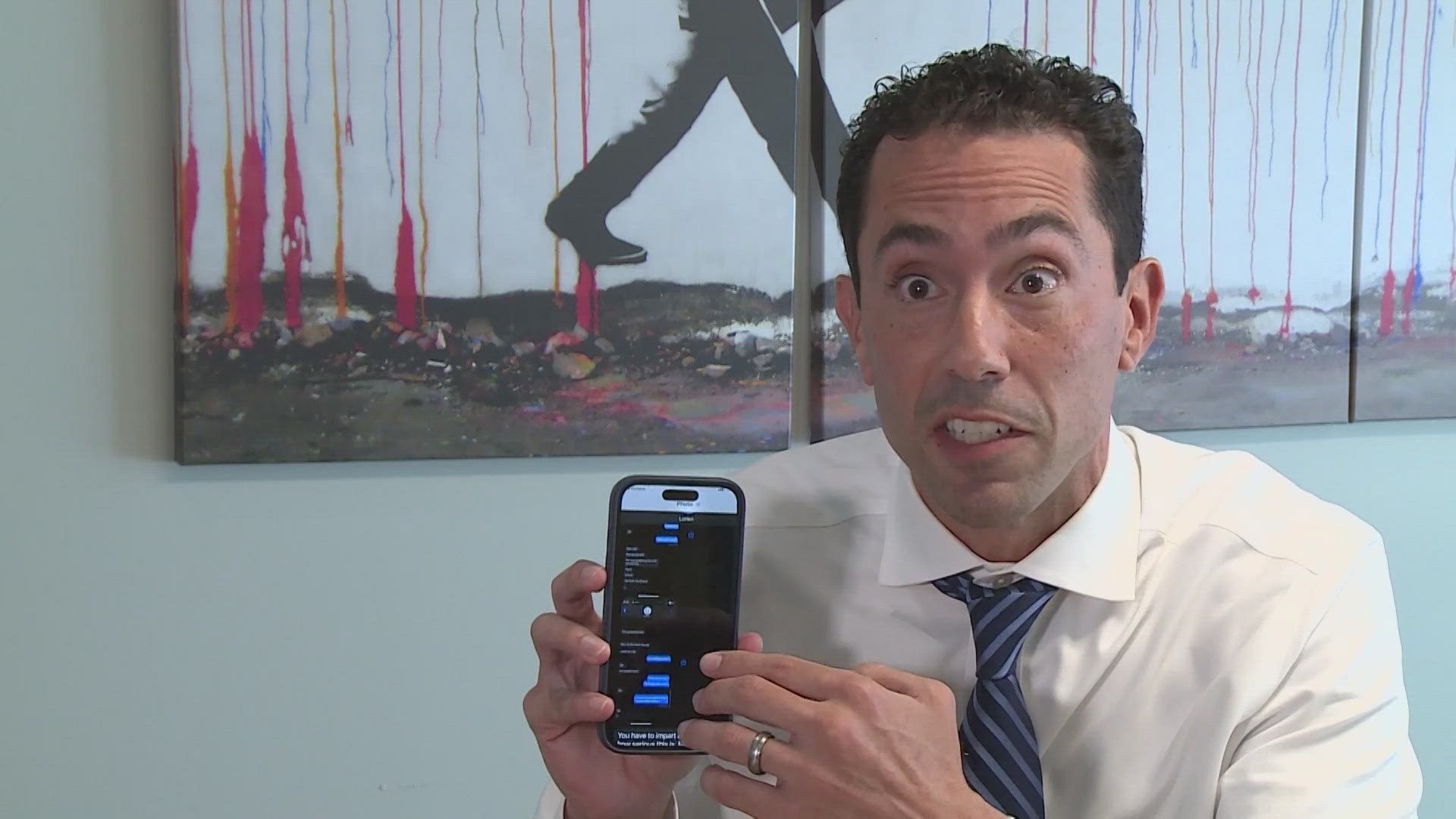SAN ANTONIO — Officials are looking into an ethics complaint filed against City Councilman Marc Whyte after he says he contacted Bexar County law enforcement about a teen girl he felt "was in danger" last month.
KENS 5 has obtained the complaint from Martin Phipps, which alleges that Whyte used his position as a city council member to interfere in a contentious custody proceeding.
The complaint says in part, "Councilman Whyte, acting under the color of his office, contacted SAPD and BCSO officers, knowingly and intentionally made false, unsubstantiated accusations of child abuse against [Phipps] and directed law enforcement to remove [the teen girl] from our home."
The complaint also alleges Whyte acted in the interest of his wife, who has been on record in Phipps and his ex-wife's custody dispute.
Phipps says in the complaint that SAPD officers and Bexar County deputies showed up to his house on April 26, while his daughter and son were staying with him, to look into claims that the girl had been abused. He says the Bexar County deputies specifically said they had been sent by Whyte to look into the claims. Phipps denies the abuse and says they accusations were false. The SAPD officers reported that they had spoken to the complaintant, his mother and the two children and found nothing wrong, according to the ethics complaint.
The complaint went on to say, "Councilman Whyte had no legitimate reason to insert himself into a private family matter of which he had absolutely no knowledge other than to use his position and authority to obtain a benefit for his wife and her client in an ongoing custody dispute."
Whyte, however, defended his actions in an Instagram post, saying that on the night of April 26 he was "informed that a 13-year-old girl had been 'hurt'" and contacted Sheriff Javier Salazar, "who was present at the same event I was attending." According to Whyte, Salazar sent a deputy to check on the girl's nearby home.
"As a result of my actions that night, Martin Phipps has filed a complaint against me, claiming that I used my office to intervene in a private custody dispute between him and his ex-wife," Whyte went on to say.
According to a statement from Salazar, Whyte and City Councilman Manny Pelaez approached him with concerns about "some sort of disturbance that was happening a few doors down from the party." The disturbance, the sheriff added, was at a home owned by Phipps.
Salazar said he sent a deputy to check out the disturbance. When the deputy returned, he told Salazar that San Antonio police officers were "already on scene handling the situation."
"He indicated to me that it was not much of a disturbance by the time he arrived," the sheriff added.
Whyte asserts that he didn't violate the city's ethics code. Chasnoff said that, per city procedure, an independent lawyer will be appointed to evaluate the complaint; if it's deemed Whyte violated code, the complaint will be forwarded to the Ethics Review Board.
Whyte in his online post expressed confidence he didn't do anything wrong.
"To my knowledge, the actions I took did not violate the San Antonio Ethics Code," he said. "My actions that evening were not those of a city official, but were those of a father of two girls - and of a concerned citizen. Any citizen of this City, whether elected or not, should always immediately notify law enforcement if the citizen believes a child is in danger."
The complaint says Whyte's actions violated Chapter 2, Article III of the City Code, which deals with conflicts of interest and unfair advancement of private interests.
The city had hired an independent compliance auditor and counsel to the Ethics Review Board, who determined that all but one allegation in the complains would be forwarded to the Ethics Review Board.
Tuesday, the Ethics board set a hearing date of August 14 to look into the complaint.
The board can choose to either dismiss the complaint or, if they find there has been a violation of ethics, they can impose sanctions, recommend criminal prosecution and/or civil remedies, or state why no remedial action is imposed/recommended.
TRENDING:
> MORE ON KENS

